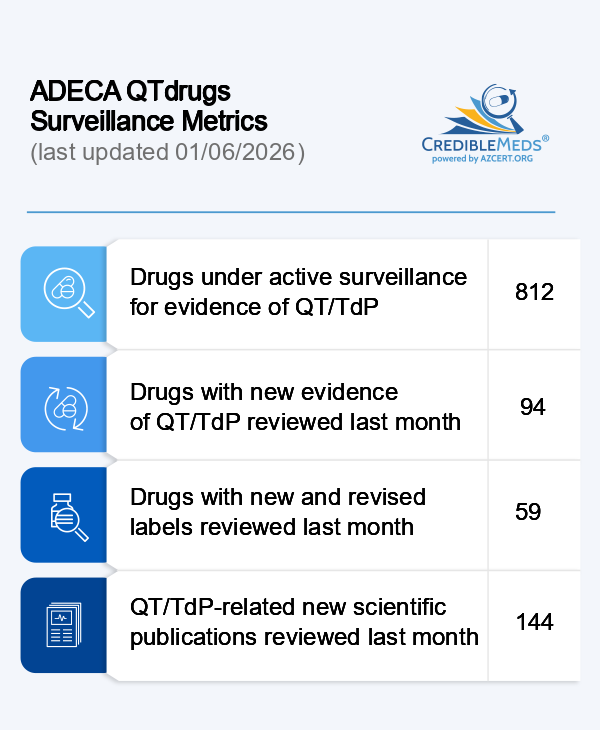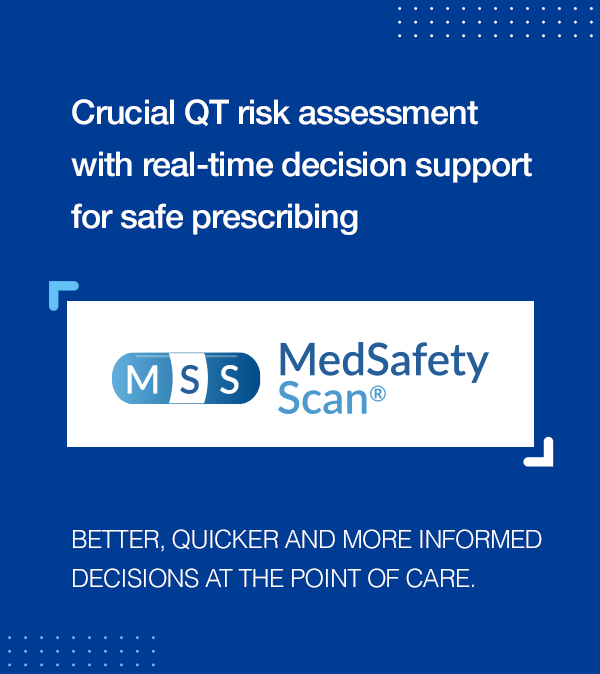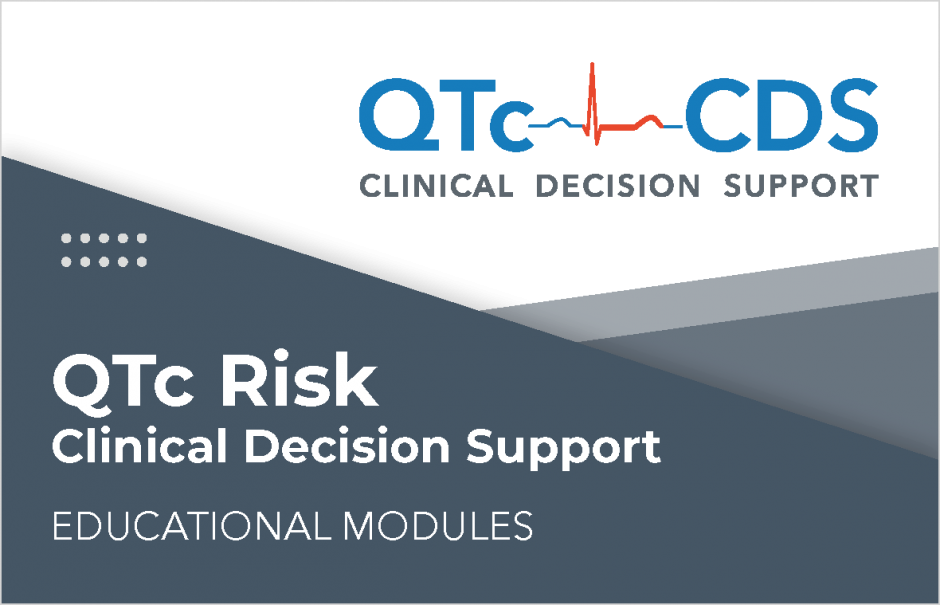CredibleMeds® Risk Categories for Drugs that Prolong QT and induce Torsades de Pointes (TdP)
Based on ongoing systematic analysis of all available evidence, CredibleMeds® places drugs into broad categories based on whether each can cause QT prolongation or TdP. Because these actions are highly dependent on the circumstances of each drug’s use AND each patient’s clinical characteristics, we do not attempt to rank-order the drugs within each category. Therefore, we do not recommend that these lists be used to rank-order the drugs for their relative toxicity.















